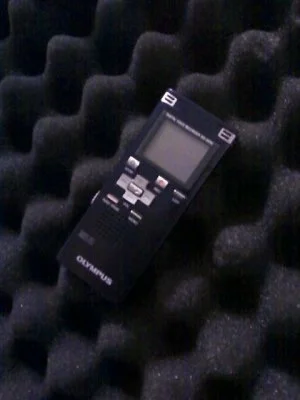Spending house on end analyzing audio from the night before becomes a wavering task for any paranormal investigator or ghost hunter. Making sure to keep in mind as you open your comforted analyzing software that you don't over enhance the raw data any more than a few times at best, and keeping a separate copy so you always have the original data on file. Enhancing audio is a very critical moment when it comes to analyzing. Point being that when you do, there is room for audible error which can mistakenly allow anyone to hear what may sound to them as words, but in reality, could have been anything else than that.
Recording audio can be very exciting for anyone, whether it be the first timer or one who has thousands of minutes invested in audio data. Making the decision to keep your sessions brief, preferably no more than ten minutes would suffice. The reason being, is that it not only keeps you from burning out listening to endless recordings, but it limits the time to areas of importance in case you do find something of interest and can easily be shared with others. This method is called Time Stamping. When sessions are commenced, everyone begins on the same recording time, which makes it easier to acknowledge with others where and when to locate certain audible areas. With everyone in sync, recordings are not only easy to locate, but are easier to log and share with your clients.
When sharing audio with other members of your team, group or organization, keep in mind that when you do, as you present it to them, ask them to let you know what they hear, what they think it may or may not be. Keeping an open mind for your members as well as clients, that you get a better understanding of what it could be rather than intentionally or not telling them what you think it is, which would only subconsciously plant that idea in their head, resulting in they're thinking they hear the very same thing. Better to hear something for what it is than not.
